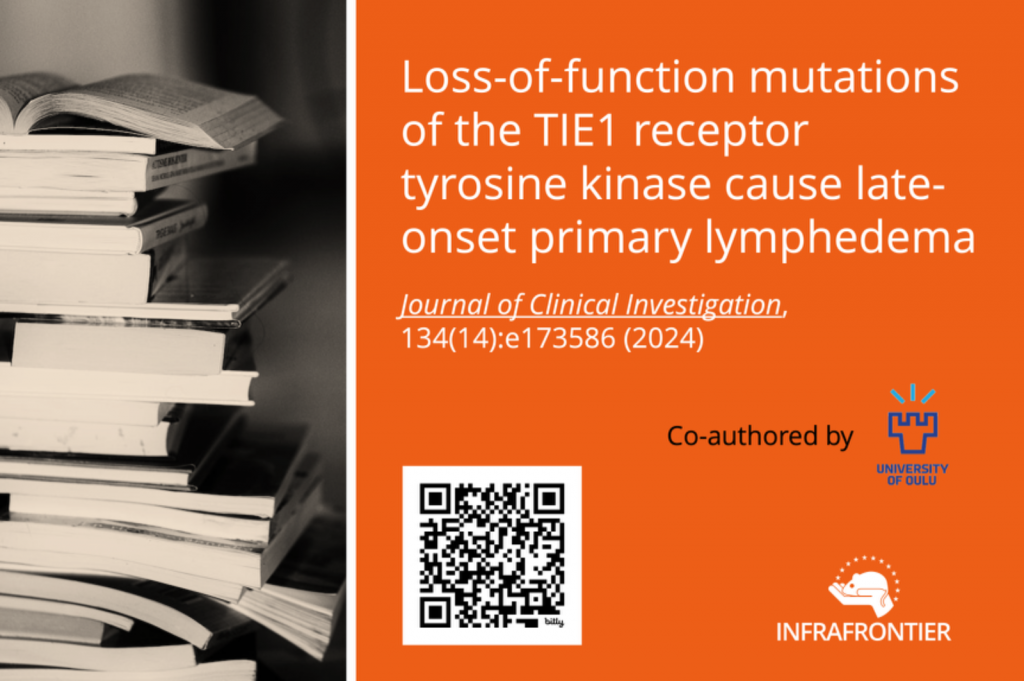Loss-of-Function Mutations of the TIE1 Receptor Tyrosine Kinase Cause Late-Onset Primary Lymphedema
New publication co-authored by the Biocenter Oulu at Oulu University
Abstract
Primary lymphedema (PL), characterized by tissue swelling, fat accumulation, and fibrosis, results from defects in lymphatic vessels or valves caused by mutations in genes involved in development, maturation, and function of the lymphatic vascular system. Pathogenic variants in various genes have been identified in about 30% of PL cases. By screening of a cohort of 755 individuals with PL, we identified two TIE1 (tyrosine kinase with immunoglobulin- and epidermal growth factor-like domains 1) missense variants and one truncating variant, all predicted to be pathogenic by bioinformatic algorithms. The TIE1 receptor, in complex with TIE2, binds angiopoietins to regulate the formation and remodeling of blood and lymphatic vessels. The premature stop codon mutant encoded an inactive truncated extracellular TIE1 fragment with decreased mRNA stability, and the amino acid substitutions led to decreased TIE1 signaling activity. By reproducing the two missense variants in mouse Tie1 via CRISPR/Cas9, we showed that both cause edema and are lethal in homozygous mice. Thus, our results indicate that TIE1 loss-of-function variants can cause lymphatic dysfunction in patients. Together with our earlier demonstration that ANGPT2 loss-of-function mutations can also cause PL, our results emphasize the important role of the ANGPT2/TIE1 pathway in lymphatic function.
Original publication:
Brouillard P, Murtomäki A, Leppänen VM et al. Loss-of-function mutations of the TIE1 receptor tyrosine kinase cause late-onset primary lymphedema. J Clinic Inves (2024). DOI: 10.1172/JCI173586
